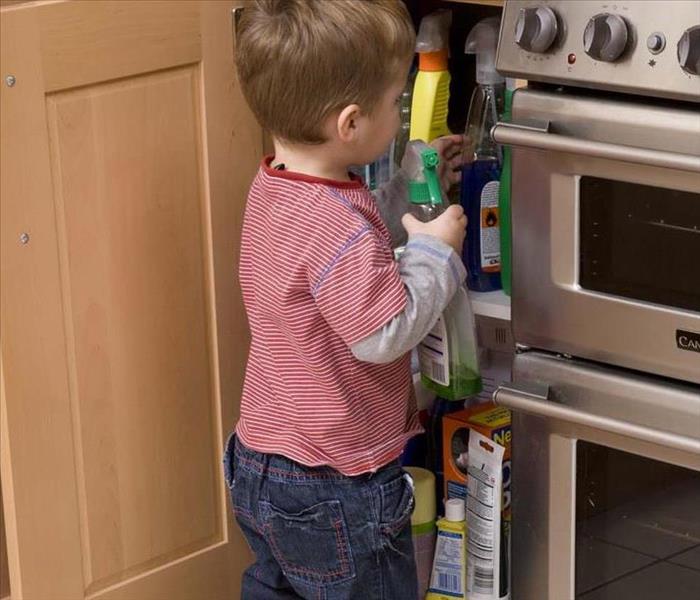Home Chemical Safety Tips
8/25/2016 (Permalink)
There is an endless supply of cleaning products in our home – everything from glass cleaner and disinfectant wipes, to chlorine bleach and insecticides. These can be found all over the house inside cupboards, under bathroom sinks, and in garages. If these chemicals are used or mixed incorrectly, the result can be extremely hazardous. So what can you do to increase chemical safety at home (and even in the workplace)? Here are some tips that the American Society of Safety Engineers (ASSE) suggest:
- Make sure you read the warning labels carefully – these contain important instructions on proper use, storage, and disposal.
- Don’t use too much of one cleaning product.
- Immediately wash your hands with warm, soapy water after use of any chemical product.
- Always properly ventilate the area that you are using the chemicals – keep a window open and turn on the fan.
- Make sure you properly dispose of chemicals. Always dispose of any bottles that you notice are leaking or expired.
- Keep all cleaning supplies and hazardous chemicals away from food and food preparation areas.
- Do not combine chemicals or household cleaners.
- Keep hazardous materials out of reach of children.
If you are unsure of what substances in your home could be potentially harmful, look for the following characteristics:
- Corrosive - They eat or wear away at many materials;
- Flammable - They easily ignite;
- Reactive - They can cause an explosion or produce deadly vapors; and
- Toxic - They are poisonous to humans and animals.
Some examples of hazardous wastes found around the home include antifreeze, batteries, brake fluid, chemical strippers, chlorine bleach, contact cement, drain cleaners, insecticides, lawn chemicals, nail polish remover, spot removers, toilet and oven cleaners and used motor oil.
In case of accidental ingestion, immediately contact the Poison Control Center (in the United States it is (800) 222-1222).
If you ever need more information about a specific product, you can always find the manufacturer's contact information on the label.
For more information, please visit http://ehstoday.com/safety/chemical/ehs_imp_39314





 24/7 Emergency Service
24/7 Emergency Service